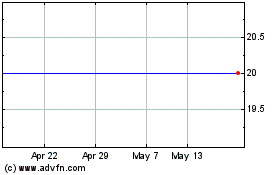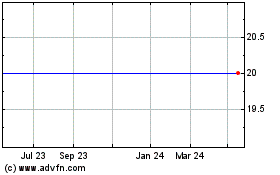Re Contract
August 04 2000 - 12:23PM
UK Regulatory
RNS Number:0354P
Pall Corporation
4 August 2000
For More Information Contact:
Diane Foster, Pall Corporation
(516)484-3600, ext 6109
Pall Corporation Wins $6 Million Contract From Second Largest Blood Center in
Germany
East Hills, NY (07/26/2000) - - Pall Corporation (NYSE: PLL) has been awarded a
$6 million contract for blood filtration systems by the second largest blood
center in Germany. The German Red Cross Transfusion Center, Lower Saxony, with
headquarters in Springe, informed its customers that it will filter all of its
approximately 700,000 annual blood collections starting in August, 2000. Pall's
clinically proven technologies are at the heart of a safe blood supply.
The Red Cross Transfusion Center, Lower Saxony, is one of the first of Germany's
largest blood centers to implement 100% blood filtration voluntarily. Four major
blood centers process more than 50% of the nation's 4.4 million blood
collections annually. The German government is expected to mandate universal
filtration to reduce donor white cells (leukocytes) according to an announcement
made by the Paul-Ehlrich Institut earlier this year.
The Paul-Ehrlich Institut is an independent Federal agency within the
jurisdiction of the German Federal Ministry of Health. It is responsible for
licensing and batch control of biological drugs for human and veterinary use. In
1994, it assumed additional responsibility for all blood products calling them
"a particularly precarious group of drugs carrying a sizeable risk of viral
contamination and variations in efficacy." Much like the U.S. Food and Drug
Administration, the Institut is authorized to issue directives to pharmaceutical
companies and transfusion centers to prevent or reduce risks associated with
biological products. The Paul-Ehrlich Institut is a strong proponent of
leukocyte reduction as a means to enhanced blood safety.
As of this writing, the majority of Western European countries have either
introduced universal blood filtration to reduce donor white cells, or are
considering to do so. The Basque region of Northern Spain recently joined this
growing list. Donor white blood cells cause reactions at the time of
transfusions, are known to transmit disease and predispose recipients to
infection. Longer and more expensive hospital stays result, with overall
diminished patient outcomes.
In the U.S., the FDA's Blood Products Advisory Committee, an independent board
upon which the Federal Government relies to furnish expert advice, unanimously
agreed that, "the benefit to risk ratio associated with leukoreduction is
sufficiently great to justify routine leukoreduction of all non-leukocyte
transfusion blood components...." Since this September, 1998 recommendation,
leukocyte reduction by filtration in the U.S. has increased from about 16% to
more than 40% today. The American Red Cross, which manages about 45% of the U.S.
blood supply, has publicly stated its intention to filter all of its blood
collections by the end of the year.
Pall Corporation, the market leader, offers the broadest range of advanced blood
filtration products and the support services to help blood centers meet the
challenges of implementing routine, high volume, blood filtration. The Company
is prepared to meet the growing requirements of its customers for products,
logistics and regulatory support. Pall reported fiscal 1999 blood filter sales
in excess of $185 million and sales for the first nine months of fiscal 2000
have increased 19% in local currency, reflecting increased worldwide demand. The
world market for blood filters is estimated at $1.2 billion.
The Company is also collaborating with V.I. Technologies (NasdaqNM: VITX) to be
the first to commercialize pathogen inactivation technology for red cells. Red
cells are the most frequently transfused blood component with over 50 million
transfusions worldwide annually. Pathogen inactivation is breakthrough
technology that promises to eradicate harmful pathogens, including HIV and
Hepatitis C, from donor blood. When coupled with the market for pathogen
inactivation technology, the size of the market is over $5 billion.
Pall is the acknowledged technology leader in the increasingly complex and
demanding filtration industry and has been for more than 50 years. The Company
serves more markets with more proprietary products than any other company in the
$18 billion filtration industry. With annual sales of over $1 billion, Pall
Corporation is based in East Hills, New York, USA and operates directly in 30
countries. The Company's shares are listed on the New York Stock Exchange (PLL).
Further information is available at http://www.pall.com and
http://www.bloodtransfusion.com.
This release contains "forward-looking statements" as defined in the Private
Securities Litigation Reform Act of 1995. These statements are based on current
company expectations and are subject to risks and uncertainties which could
cause actual results to differ materially. Such risks and uncertainties include,
but are not limited to, foreign currency exchange fluctuations, regulatory
approvals, market acceptance of new technologies, economic conditions and market
demand.
Equatorial Palm Oil (LSE:PAL)
Historical Stock Chart
From Jul 2024 to Aug 2024

Equatorial Palm Oil (LSE:PAL)
Historical Stock Chart
From Aug 2023 to Aug 2024
